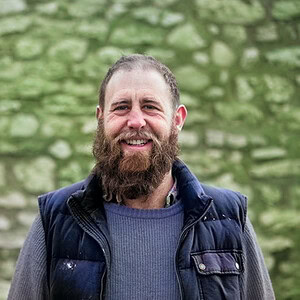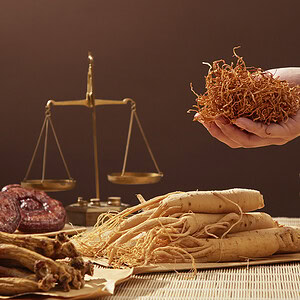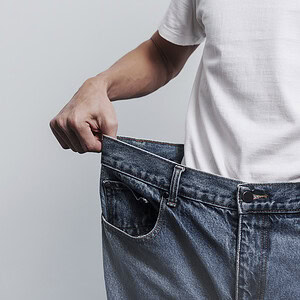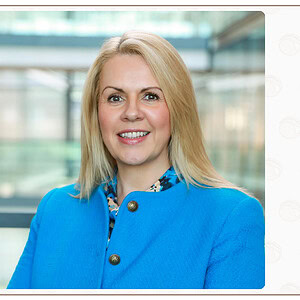How can dietary and lifestyle guidance support prospective parents on their journey to pregnancy?
Difficulty conceiving affects one in seven couples, according to the NHS.
While anyone experiencing fertility problems should speak with their GP, there is growing evidence that lifestyle changes may make a difference in some cases.
Weybridge-based registered nutritional therapy practitioner Julia Young struggled with her own fertility.
Now, she specialises in working with people who are trying to conceive naturally or planning to take IVF.
Common Disorders Affecting Fertility
Young often sees common hormonal disorders such as polycystic ovary syndrome (PCOS) in clinic.
“Women with PCOS may have a longer cycle…or they may not be ovulating,” says Young.
“And, obviously, if you’re not ovulating, you’re not going to be conceiving, so natural conception can be a lot harder.”
Along with irregular periods, PCOS can cause weight gain, facial hair, thinning hair on the head, acne and mood swings.
It is also often associated with insulin resistance, which is a precursor to type 2 diabetes.
Diet and lifestyle, however, can be “really effective” in supporting women with PCOS, she says, improving hormone balance, the menstrual cycle, and getting women closer to a 28-day cycle.
Weight loss for pregnancy
Obesity, which often accompanies PCOS, doesn’t just affect the chances of conceiving.
“It’s an inflammatory condition, so it can affect the quality of our egg,” says Young.
Often people will want a quick fix with losing weight, she says, but there isn’t one.
“I have to explain it’s really about focusing on health first,” she says. “The main goal is to have a healthy pregnancy and a healthy baby. So we need to focus on health.
“We’re not restricting [foods] and taking lots away, but putting in all the nourishing foods they need; and they hopefully, naturally, see the weight come off.”
Rollercoaster blood sugars, when people experience energy highs and slumps, or frequently feel hungry, are often a factor in inflammation and weight gain.
For clients who exacerbate this by habitually snacking, Young aims to get them eating three satisfying meals a day, “so we’re not having that insulin increase throughout the day, which may well have been encouraging fat storage”.
it’s not a sprint, it’s a marathon — because we want this to be a healthy baby
Male infertility
Stabilising imbalanced blood sugars and bringing down weight gain — both of which contribute to inflammation in the body — is also beneficial for prospective fathers.
“We know in 30 to 40% of cases, the reason for infertility is the male factor,” says Young. “With men, working on diet and lifestyle is particularly effective in helping improve their sperm quality.”
Young says tests may show whether there is structural damage to sperm.
If damage is high, she says there are key areas to address, such as whether there are varicose veins on the testicles; in which case, the client would need to consult a urologist.
“But the other main reason [for poor quality sperm] is down to diet and lifestyle,” she says.
Stress and pregnancy
Evidence shows that lowering stress is important for fertility, because stress lowers levels of the main sex hormone: gonadotropin-releasing hormone (GnRH).
The negative effect of stress on fertility is a phenomenon seen in many animals — such as when heat stress causes chickens to lay fewer eggs or cattle to produce fewer calves.
Lack of food — another physical stressor — also causes the reproductive cycle to shut down, as can happen with severe weight loss.
Yet struggling to conceive is itself stressful.
“Personally, I think stress is one of the hardest [obstacles],” says Young.

Does exercise help?
Exercise is also key, although Young says it is important to not over-do it.
“We know that it’s a stressor on the body and increases oxidative stress,” she says. “But we also know that movement is important.”
If weight and blood sugars are an issue, Young says that a walk after eating may help to reduce the blood sugar response.
Getting out into natural daylight will also help with topping up vitamin D or stress reduction.
“Definitely I encourage movement. I also love couples yoga…[as] a really good bonding experience for them that maybe isn’t focusing on the fertility so much.”
What to eat to get pregnant
Young doesn’t advocate any particular diet, but does believe the Mediterranean way of eating can support fertility.
“The Mediterranean diet is all about being social, eating together and being active. It’s not just about food.
“Then it’s all about the vegetables and variety, colour, and making sure we’re having the healthy proteins [and] some fat.”
Some may choose the label ‘rainbow coloured’ rather than ‘Mediterranean’, focusing on eating a variety of whole foods rather than any specific cuisine.
Young also emphasises the importance of avoiding sugary, ultra-processed and packaged foods as much as possible.
Drinking during pregnancy
Previously, guidance in the UK over alcohol and pregnancy has been mixed, but now the NHS clearly recommends avoiding alcohol completely throughout pregnancy.
In fact, even before conception, alcohol consumption is understood to affect fertility for both males and females, whilst increasing the risk of foetal loss.
How to get pregnant
Finally, Young stresses the importance of a personalised approach.
“Everyone’s at a different starting point,” she says. “I’ll get people [in clinic] and I’ll see their food diaries and they’re actually eating really well. And, actually, maybe diet isn’t the main issue we need to work on.
“Their sleep might be really poor, or they might be really stressed and we only need to make a few tweaks to the diet. In other cases, they really need lots of help supporting their diet first.”
Yet whilst the obstacles people face depend on the individual, hoping for a quick fix is common.
It may sound like a cliché, she says, but “it’s not a sprint, it’s a marathon — because we want this to be a healthy baby”.
Enjoyed this article?
Read about how nutrition can help tackle exam stress
Click here to learn about Catherine Jeans’ journey to nutritional therapy
For articles and recipes subscribe to the Optimum Nutrition newsletter
Discover our courses in nutrition






